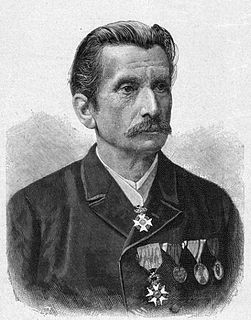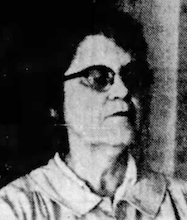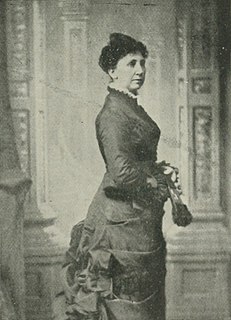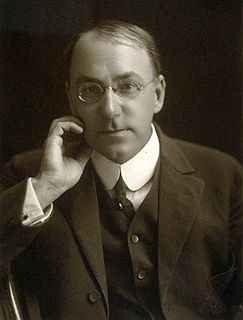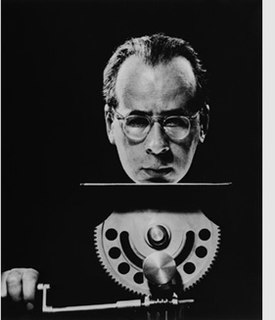A Quote by Gene Wolfe
We think that we know a man or a woman, when so much of what we know is actually that man's or that woman's situation, his or her place on the board of life. Move the pawn to the last row and see her rise in armor, sword in hand.
Related Quotes
From woman, man is born; within woman, man is conceived; to woman he is engaged and married. Woman becomes his friend; through woman, the future generations come. When his woman dies, he seeks another woman; to woman he is bound. So why call her bad? From her, kings are born. From woman, woman is born; without woman, there would be no one at all.
Man is the one who desires, woman the one who is desired. This is woman's entire but decisive advantage. Through man's passions, nature has given man into woman's hands, and the woman who does not know how to make him her subject, her slave, her toy, and how to betray him with a smile in the end is not wise.
The misnamed "feminine" woman, so admired by her creator, man - the woman who is acquiescent in her inferiority and who has swallowed man's image of her as his ordained helpmate and no more - is in reality the "masculine" woman. The truly feminine woman "cannot help burning with that inner rage that comes from having to identify with her exploiter's negative image of her," and having to conform to her persecutor's idea of femininity and its man-decreed limitations.
The enemy is like a woman, weak in face of opposition, but correspondingly strong when not opposed. In a quarrel with a man, it is natural for a woman to lose heart and run away when he faces up to her; on the other hand, if the man begins to be afraid and to give ground, her rage, vindictiveness and fury overflow and know no limit.
Men and women are made for each other, but their mutual dependence differs in degrees; man is dependent on woman through his desires; woman is dependent on man through her desires and also through her needs; he could do without her better than she can do without him. She cannot fulfill her purpose in life without his aid, without his goodwill, without his respect.....Nature herself has decreed that woman, both for herself and her children, should be at the mercy of man s judgment.
Always man needs woman for his friend. He needs her clearer vision, her subtler insight, her softer thought, her winged soul, her pure and tender heart. Always woman needs man to be her friend. She needs the vigor of his purpose, the ardor of his will, his calmer judgment, his braver force of action, his reverence and his devotion.
I have lived through war, and lost much. I know what's worth the fight, and what is not. Honor and courage are matters of the bone, and what a man will kill for, he will sometimes die for, too. And that, O kinsman, is why a woman has broad hips; that bony basin will harbor a man and his child alike. A man's life springs from his woman's bones, and in her blood is his honor christened. For the sake of love alone, I would walk through fire again.
I saw what I had been fighting for: It was for me, a scared child, who had run away a long time ago to what I had imagined was a safer place. And hiding in this place, behind my invisible barriers, I knew what lay on the other side: Her side attacks. Her secret weapons. Her uncanny ability to find my weakest spots. But in the brief instant that I had peered over the barriers I could finally see what was finally there: an old woman, a wok for her armor, a knitting needle for her sword, getting a little crabby as she waited patiently for her daughter to invite her in.
Nora leaves her husband, not-as the stupid critic would have it-because she is tired of her responsibilities or feels the need of woman's rights, but because she has come to know that for eight years she had lived with a stranger and borne him children. Can there be anything more humiliating, more degrading than a life-long proximity between two strangers? No need for the woman to know anything of the man, save his income. As to the knowledge of the woman-what is there to know except that she has a pleasing appearance?
With a woman I try to photograph her beauty; with a man I try to show his character. Once I photographed a man with a big nose (Jimmy Durante), and emphasized his nose, and he was very pleased with the picture. That could not happen with a woman. The most intelligent woman will reject a portrait if it doesn't flatter her.
I've come to this belief that, if you show me a woman who can sit with a man in real vulnerability, in deep fear, and be with him in it, I will show you a woman who, A, has done her work and, B, does not derive her power from that man. And if you show me a man who can sit with a woman in deep struggle and vulnerability and not try to fix it, but just hear her and be with her and hold space for it, I'll show you a guy who's done his work and a man who doesn't derive his power from controlling and fixing everything.
A woman in the presence of a good man, a real man, loves being a woman. His strength allows her feminine heart to flourish. His pursuit draws out her beauty. And a man in the presence of a real woman loves being a man. Her beauty arouses him to play the man; it draws out his strength. She inspires him to be a hero.


